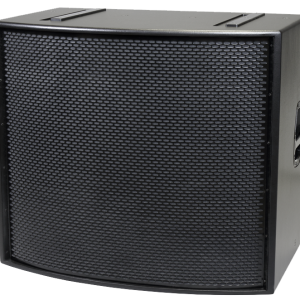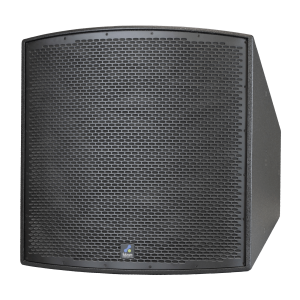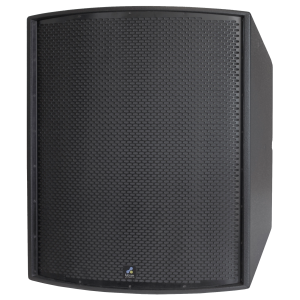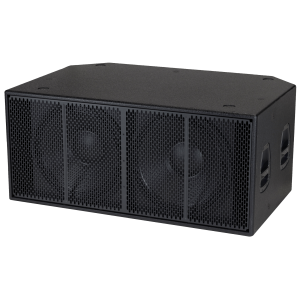Crusader Stadium at University of Mary Hardin-Baylor
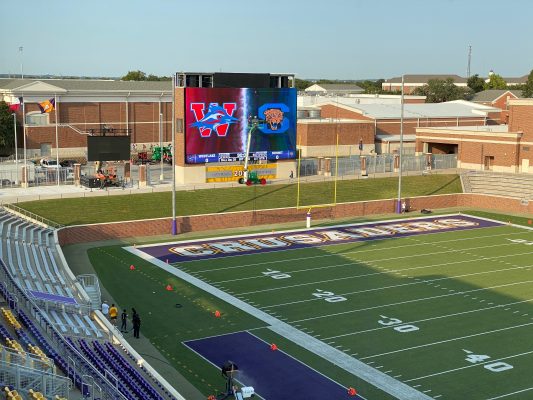 Crusader Stadium is the home of the NCAA Cru Football team at the University of Mary Hardin-Baylor. During the summer of 2021, Daktronics upgraded the end-zone scoreboard and sound system with the goal of doubling the size of the video display area while minimizing changes to the existing structure.
Crusader Stadium is the home of the NCAA Cru Football team at the University of Mary Hardin-Baylor. During the summer of 2021, Daktronics upgraded the end-zone scoreboard and sound system with the goal of doubling the size of the video display area while minimizing changes to the existing structure.
Challenges
- The new, enlarged video display consumed all available space within the existing structure. Additional structure was required to house a new sound system; this structure was added above the video display. Due to wind loading concerns, the height of this additional structure was restricted to about 6’ tall, thereby limiting the space available for loudspeakers.
- The end-zone location of the speaker system necessitates a high-output solution to achieve suitable sound levels at the farthest seats.
- Strict pattern control is necessary to keep sound within the seating bowl, avoid excessive sound levels on the field and at the seats, and minimize sound reflecting off of the Bawcom Student Union building behind the seats on the east side of the stadium.
Solution
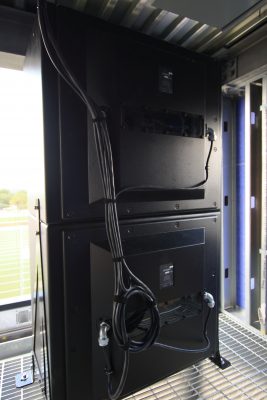 For long-throw coverage, Daktronics deployed six Fulcrum Acoustic AHS speaker modules in the horizontal “ribbon” above the video area of the scoreboard. Each AHS module packs a lot of output into a 31” tall package, with up to 4 coaxial compression drivers and 4 horn-loaded 10” woofers per module. The available space within the scoreboard structure allowed for 3 stacks of 2 modules each; this provides sufficient output to achieve the project’s sound level goals for the seating areas. The high-frequency driver density provides the output needed to minimize high-frequency air loss which becomes problematic over stadium-scale distances.
For long-throw coverage, Daktronics deployed six Fulcrum Acoustic AHS speaker modules in the horizontal “ribbon” above the video area of the scoreboard. Each AHS module packs a lot of output into a 31” tall package, with up to 4 coaxial compression drivers and 4 horn-loaded 10” woofers per module. The available space within the scoreboard structure allowed for 3 stacks of 2 modules each; this provides sufficient output to achieve the project’s sound level goals for the seating areas. The high-frequency driver density provides the output needed to minimize high-frequency air loss which becomes problematic over stadium-scale distances.
“The AH family of loudspeakers showed us that this level of output was possible from a relatively compact enclosure,” says David Gunness, Vice President of R&D at Fulcrum Acoustic. “The AHS is just the next phase of development for long-throw applications, meant to deliver significant high frequency projection and an adjustable vertical pattern to provide the exact coverage required.”
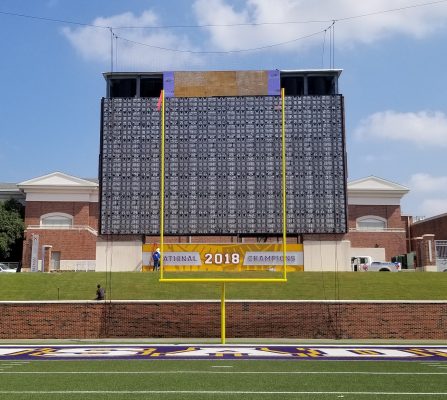 The compact enclosure of Fulcrum Acoustic’s AHS Series allows the modules to be incorporated within the available space above the video display and to be maneuvered on-site during installation more easily than other solutions. “Even when stacked, Fulcrum’s AHS products easily fit within the space provided,” says Applications Engineer David Sturzenbecher.
The compact enclosure of Fulcrum Acoustic’s AHS Series allows the modules to be incorporated within the available space above the video display and to be maneuvered on-site during installation more easily than other solutions. “Even when stacked, Fulcrum’s AHS products easily fit within the space provided,” says Applications Engineer David Sturzenbecher.
“Maximizing video display size is a common goal for new scoreboards. When designing companion sound systems, smaller is always better,” says Rich Frembes, Product Developer at Fulcrum Acoustic. “The fact that the AHS provides precise coverage and substantial output from such a small footprint is a benefit for any stadium.”
Two stacks of two AHS440 modules are splayed left and right of center to cover the far seating along the sides of the stadium. The 45° horizontal dispersion of the AHS440 maintains lateral uniformity within the coverage pattern. Fulcrum Acoustic’s beam forming DSP algorithms configure the vertical dispersion as required by the specific geometry of the stadium. The middle stack features an AHS440 stacked on an AHS460 (60° horizontal) aimed down the centerline of the field to provide long-throw coverage of the far end as well as coverage of the playing field.
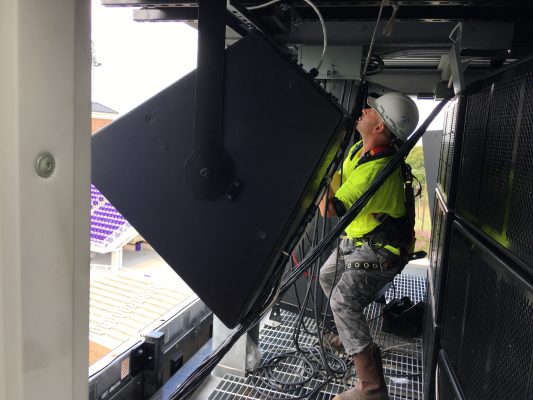 Coverage for seating areas closer to the scoreboard is supplied by two AH463 Coaxial Horns positioned at the outer edges of the scoreboard. A single FH1596 Full Range Coaxial Horn supplies down-fill coverage for the grassy berm and near endzone area. Two additional FH1565 Full Range Coaxial Horns are embedded within separate niches to provide side fill coverage. Two stacks of three Sub218L dual 18” subwoofers extend the low frequency response of the system. The low profile of the Sub218L allows for three-high stacks to fit within the available space.
Coverage for seating areas closer to the scoreboard is supplied by two AH463 Coaxial Horns positioned at the outer edges of the scoreboard. A single FH1596 Full Range Coaxial Horn supplies down-fill coverage for the grassy berm and near endzone area. Two additional FH1565 Full Range Coaxial Horns are embedded within separate niches to provide side fill coverage. Two stacks of three Sub218L dual 18” subwoofers extend the low frequency response of the system. The low profile of the Sub218L allows for three-high stacks to fit within the available space.
“It’s an impressive full-range system with a remarkable level of control,” says Sturzenbecher. “I can already imagine utilizing the AHS for many more applications, particularly stadiums, going forward.”
Project Details
| Location | Belton, Texas |
|---|---|
| Market | Sports Stadiums and Arenas |
| Type | 9,118 seat capacity stadium |
| Fulcrum Products | (6) AHS – Digitally Configurable Coaxial Horn |
| (3) FH15 – Full-Range Coaxial Horn | |
| (2) Legacy AH4 Series Loudspeakers | |
| (6) Sub218L Dual 18″ Direct-Radiating Subwoofer | |
| Supporting Products | Dynacord IPX Series Amplifiers |
| QSC Q-SYS DSP |
